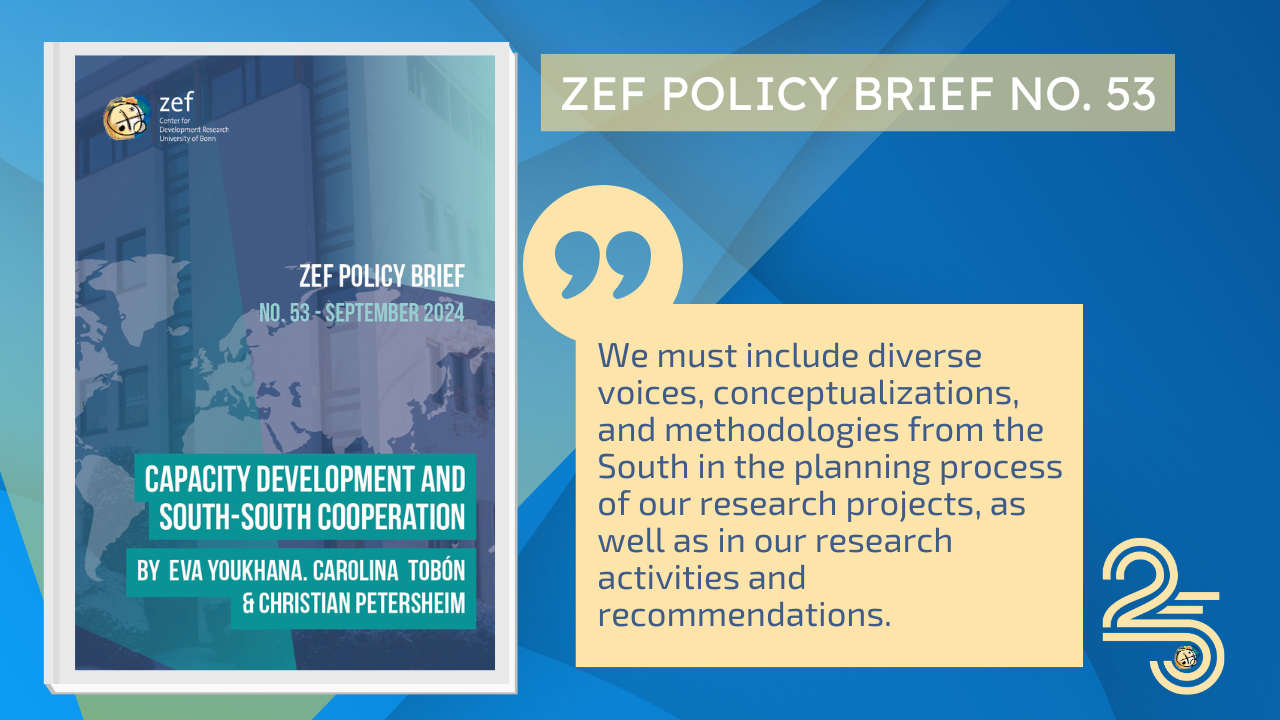Cooperation in international higher education should create more equal conditions for the exchange of knowledge with South-South partners.
Creating common grounds for addressing development issues
To shape a sustainable future, it’s essential to identify and address development issues collaboratively with political and civil society stakeholders. Traditionally, international donors, guided by the policies of the UN and the Bretton Woods institutions (IMF and World Bank), managed these tasks. Their policies implied and prescribed structural adjustments by and in the partner countries of the Global South, often through bilateral cooperation agreements between industrialized countries and so-called developing countries, created under conditions of entangled dependencies.
New South and South-South
Today, we are talking about the countries of the New South. These countries have intensified and possibly adapted their efforts towards more sustainability. At the same time, they are developing their own, more locally adapted strategies and alternative development models or even alternatives to the perceived Eurocentric development model (including SDGs), often based and focused on economic growth and technological solutions. ZEF has been actively contributing to these efforts since its inception. ZEF’s international doctoral program (BIGS-DR) is a cornerstone of its work, fostering a global network of scholars and practitioners. ZEF has established several important programs across Africa, Latin America, and Asia. ZEF also supports South-South cooperation, where countries in the Global South collaborate directly.
Academic barriers for partners from the South
However, challenges persist. South-South collaboration often faces logistical and institutional barriers, such as visa restrictions and academic inequities. Western dominance in knowledge production remains an issue, hindering Southern partners’ access to academic resources and publication opportunities. Moreover, the high transaction costs of sustained collaboration and language barriers add to these challenges.
Creating more equitable conditions for global academic competition
To move forward, ZEF recommends including diverse Southern perspectives in research planning and implementation, ensuring equal opportunities for South-South knowledge exchange, and strengthening financial support for bilateral and multilateral collaborations. The goal is to create more equitable conditions for global academic competition and to systematically address the consequences of global inequalities.
Read the full text in ZEF Policy Brief no. 53 by Eva Youkhana, Privatdozent (PD) at the University of Bonn and Senior Researcher at ZEF. She leads the ZEF Research Group on Cultural and Political Change. Carolina Tobón and Christian Petersheim are Senior Researchers at ZEF and coordinators of the DSSP.



Leave a Reply